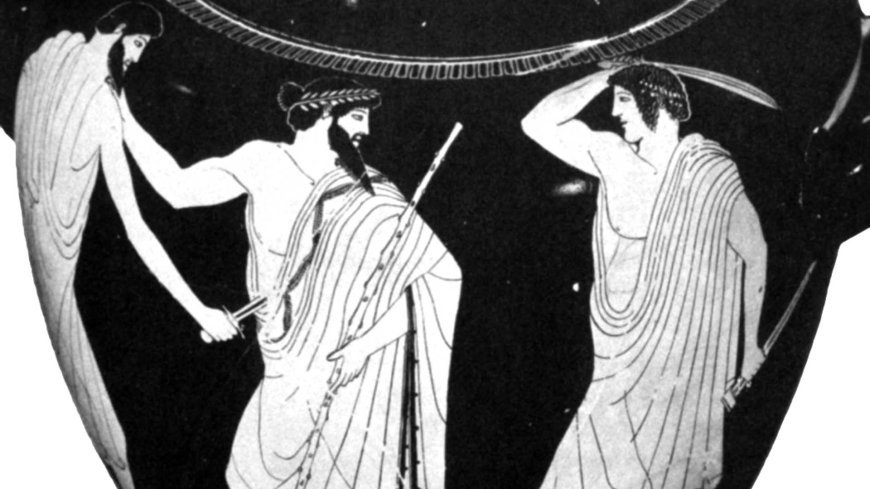Argumentum ad Verecundiam
This fallacy relies upon a person's status or position rather than the actual evidence or reasoning that underpins their assertion. It substitutes genuine proof with an appeal to perceived wisdom or power.

The Appeal to Authority fallacy, formally known as Argumentum ad Verecundiam (Latin for "argument from reverence" or "appeal to modesty"), occurs when someone argues that a claim must be true simply because an alleged authority figure or expert believes it. While citing a legitimate and relevant expert can be a valid way to support a claim, this fallacy arises when the authority cited is not a genuine expert in the relevant field, is biased, is not in agreement with the consensus of other experts, or if the appeal to authority is used as the sole justification for a complex claim that requires more direct evidence.
The Core Mechanism of the Appeal to Authority
The structure of an Appeal to Authority typically looks like this:
- Authority A believes X.
- Therefore, X must be true.
The flaw here is that an authority's belief, by itself, doesn't constitute irrefutable proof. Even genuine experts can be mistaken, biased, or speaking outside their area of expertise. The validity of a claim should rest on logical reasoning and empirical evidence, not merely on who said it.
The wordings that often characterize an Appeal to Authority can include phrases like:
- "Dr. Smith says that..."
- "According to [renowned expert],..."
- "As [famous person] once said..."
- "Scientists have proven..." (without specific citation or consensus)
- "My professor told me..."
- "Leading experts agree that..." (without specifying who or why)
- "It must be true because X, who is an authority, says so."
These wordings attempt to leverage the prestige or perceived knowledge of an individual or group to bypass the need for direct evidence or argument.
When an Appeal to Authority is Not a Fallacy (Legitimate Appeals)
It's crucial to distinguish between a fallacious appeal to authority and a legitimate one. It's often reasonable to rely on expert opinion, especially in fields where direct personal knowledge is impractical. A legitimate appeal to authority meets specific criteria:
- Relevance: The authority must be an expert in the specific field related to the claim.
- Expertise: The authority must have genuine knowledge, qualifications, and experience in that field.
- Consensus: The authority's opinion should align with the general consensus among experts in that field, or at least acknowledge significant dissent if it exists.
- Impartiality: The authority should be relatively unbiased and not have a significant conflict of interest regarding the claim.
- Reliability: The authority's opinion should be based on sound evidence and reasoning within their field, not just personal belief.
Example of a Legitimate Appeal: "According to NASA scientists, the Earth's climate is warming at an unprecedented rate, largely due to human activities." (NASA scientists are experts in climate science, there's a broad scientific consensus, and their work is based on rigorous data.)
Types and Examples of Fallacious Appeals to Authority
The fallacy occurs when one or more of the criteria for a legitimate appeal are violated:
-
Irrelevant Authority (Appeal to Unqualified Authority): Citing an authority who is an expert in one field but not in the field relevant to the claim.
- Example 1: "My favorite celebrity uses Brand X weight loss pills, so they must be effective."
- Analysis: A celebrity, regardless of their fame or physique, is not typically an expert in nutrition, pharmacology, or medicine. Their endorsement is not scientific evidence. The wordings appeal to star power over actual knowledge.
- Example 2: "Dr. Jones, a renowned physicist, states that the latest economic stimulus package will fail. Therefore, it will fail."
- Analysis: While Dr. Jones is an expert in physics, economics is a distinct field. Their opinion on economic policy doesn't carry expert weight in that area.
- Example 1: "My favorite celebrity uses Brand X weight loss pills, so they must be effective."
-
Biased Authority: Citing an authority whose opinion is likely influenced by personal interest or a conflict of interest.
- Example: "The CEO of a major oil company argues that climate change regulations are unnecessary and would harm the economy."
- Analysis: While the CEO might have business expertise, their strong financial interest in avoiding climate regulations makes their opinion biased and not a neutral appeal to authority on climate science or environmental policy. The wordings here should raise flags about underlying motivations.
- Example: "The CEO of a major oil company argues that climate change regulations are unnecessary and would harm the economy."
-
Outdated or Discredited Authority: Citing an authority whose views are no longer considered valid by the current expert consensus.
- Example: "Aristotle believed that heavier objects fall faster than lighter ones, so that must be true."
- Analysis: While Aristotle was a brilliant philosopher, his views on physics have been superseded by centuries of scientific observation and experimentation (e.g., Galileo's work). Modern scientific consensus contradicts this.
- Example: "Aristotle believed that heavier objects fall faster than lighter ones, so that must be true."
-
Anonymous Authority: Citing an unspecified or unnamed authority.
- Example: "Scientists say that eating chocolate is good for you, so I'm going to eat this whole bar."
- Analysis: Which scientists? What studies? Without specific identification, the claim is unsubstantiated. The wordings are vague and unverifiable.
- Example: "Experts agree that this new policy is a disaster."
- Analysis: Who are these experts? Is there a genuine consensus, or is this just an assertion?
- Example: "Scientists say that eating chocolate is good for you, so I'm going to eat this whole bar."
-
Minority/Disputed Authority: Citing an authority whose view is a minority opinion among experts in the field, or whose claims are highly disputed within their field.
- Example: "Dr. X, who has a medical degree, says that vaccines cause autism, so they must."
- Analysis: While Dr. X has a medical degree, the overwhelming global consensus among medical and scientific authorities (e.g., WHO, CDC, major medical associations) is that vaccines do not cause autism. Citing a fringe opinion against a vast consensus is fallacious.
- Example: "Dr. X, who has a medical degree, says that vaccines cause autism, so they must."
-
"Appeal to False Authority": Presenting someone as an authority who has no genuine expertise at all, often through misrepresentation or misleading credentials.
- Example: "My uncle, who is a plumber, explained that vaccines insert microchips into your body."
- Analysis: A plumber, while skilled, has no medical or scientific expertise relevant to vaccine composition or effects. The wordings try to lend credibility where none exists.
- Example: "My uncle, who is a plumber, explained that vaccines insert microchips into your body."
Why Appeal to Authority Fallacies are Persuasive (and Dangerous)
Appeal to authority fallacies are persuasive because:
- Trust in Experts: We are conditioned to trust experts, and legitimately so in many cases. The fallacy exploits this default trust.
- Cognitive Shortcut: It's easier to simply accept what an "expert" says than to critically evaluate the evidence and arguments for oneself.
- Intimidation: Disagreeing with an alleged authority can feel daunting or make one seem ignorant.
- Perceived Credibility: Citing an authority lends an air of seriousness and credibility to an argument, even if the authority is misused. The wordings like "Dr. X said..." instantly boost perceived trustworthiness.
- Lack of Knowledge: When discussing complex topics outside one's own expertise, it's natural to rely on others. The fallacy preys on this reliance.
The danger of the appeal to authority fallacy is significant. It can lead to:
- Acceptance of Falsehoods: Believing incorrect information simply because a revered, but unqualified, person stated it.
- Poor Decisions: Making choices based on unreliable or biased "expert" advice rather than sound reasoning and evidence.
- Suppression of Inquiry: If an authority's word is taken as final, it discourages further investigation, critical thinking, and the questioning of established (but potentially flawed) ideas.
- Exploitation: Individuals or groups with hidden agendas can use this fallacy to push their narratives by finding or creating "experts" who support their views, even if those views lack scientific or factual basis.
Identifying and Countering the Appeal to Authority
To identify an Appeal to Authority fallacy, pay close attention to the wordings that introduce an authority. Then, critically assess that authority:
- Are they genuinely an expert in this specific field?
- Are they biased or do they have a vested interest?
- Is their opinion representative of the expert consensus in that field?
- Is the claim one that can be settled by expert opinion, or does it require direct evidence?
To effectively counter an Appeal to Authority fallacy:
- Challenge the Authority's Expertise/Relevance: Point out that the cited individual is not an expert in the relevant field.
- Example Counter: "While [celebrity] is famous, their opinion on medical treatments isn't based on medical expertise. We need scientific studies, not endorsements."
- Using "wordings" to question the role: "Your wordings suggest they're an authority, but their expertise is in X, not Y, which is what we're discussing."
- Point Out Bias/Conflict of Interest: Highlight any reasons why the authority might be partial.
- Example Counter: "The CEO of an oil company has a clear financial stake in downplaying climate change. Their opinion isn't a neutral assessment of the science."
- Cite Counter-Authorities/Consensus: If a legitimate consensus exists, mention it to show the cited authority is an outlier.
- Example Counter: "While that single doctor might claim X, the overwhelming consensus of major medical organizations and thousands of researchers states Y."
- Demand the Evidence Itself: Insist that the arguer provide the actual evidence or reasoning that led the authority to their conclusion, rather than just relying on their name.
- Example Counter: "Instead of just telling me Dr. Z said it, can you explain the reasoning or present the studies that led to that conclusion?"
- Distinguish Between Legitimate and Fallacious Appeals: Educate on when an appeal to authority is valid and when it's not.
- Example Counter: "It's fine to cite experts, but only if they're genuinely qualified, unbiased, and represent the scientific consensus on the topic."
By critically evaluating the authority cited and demanding that claims be supported by direct evidence and sound reasoning, you can effectively disarm this pervasive fallacy and promote a more rigorous standard of argumentation.
Want to know more about fallacies? Click here to read about The False Dilemma
What's Your Reaction?
 Like
0
Like
0
 Dislike
0
Dislike
0
 Love
0
Love
0
 Funny
0
Funny
0
 Angry
0
Angry
0
 Sad
0
Sad
0
 Wow
0
Wow
0





















